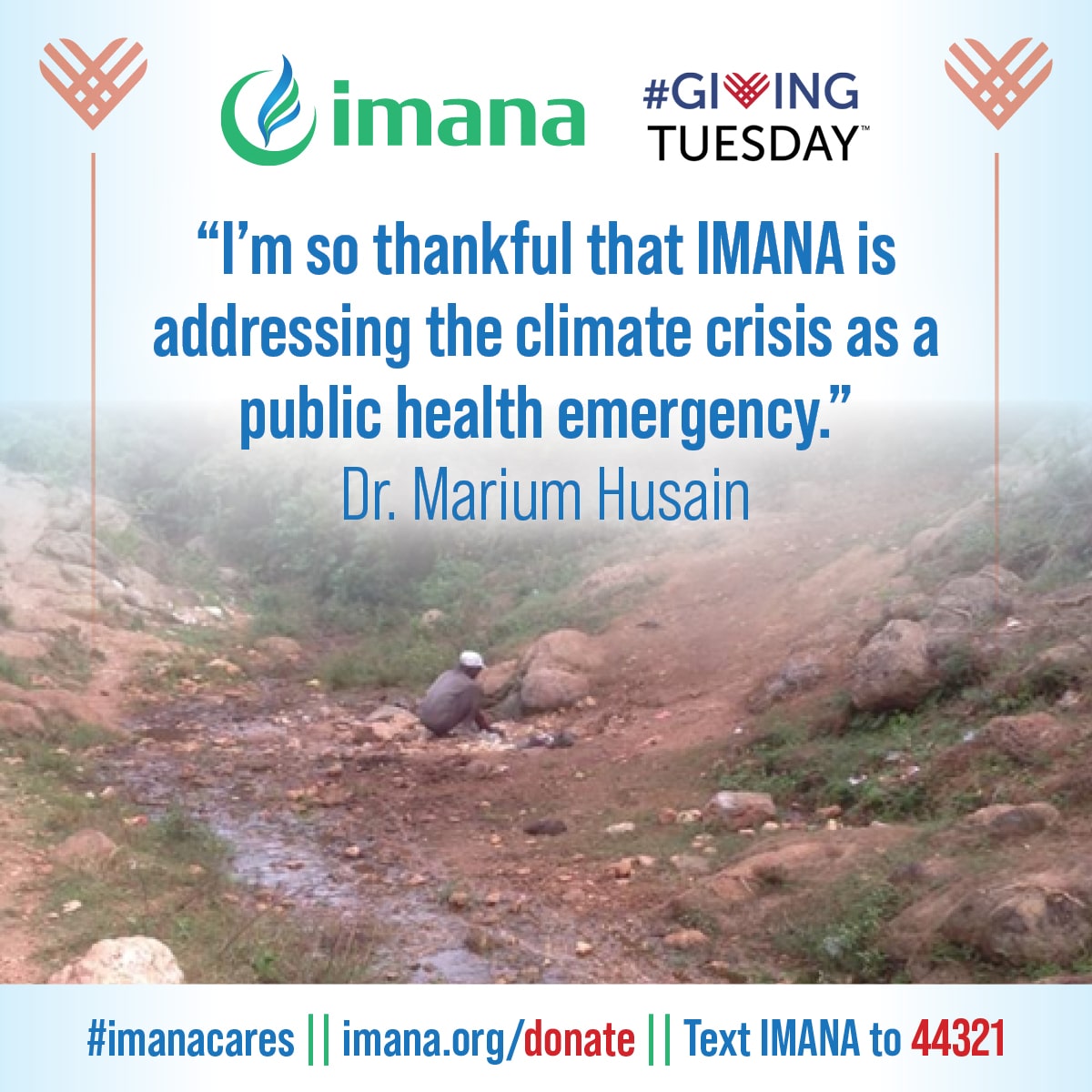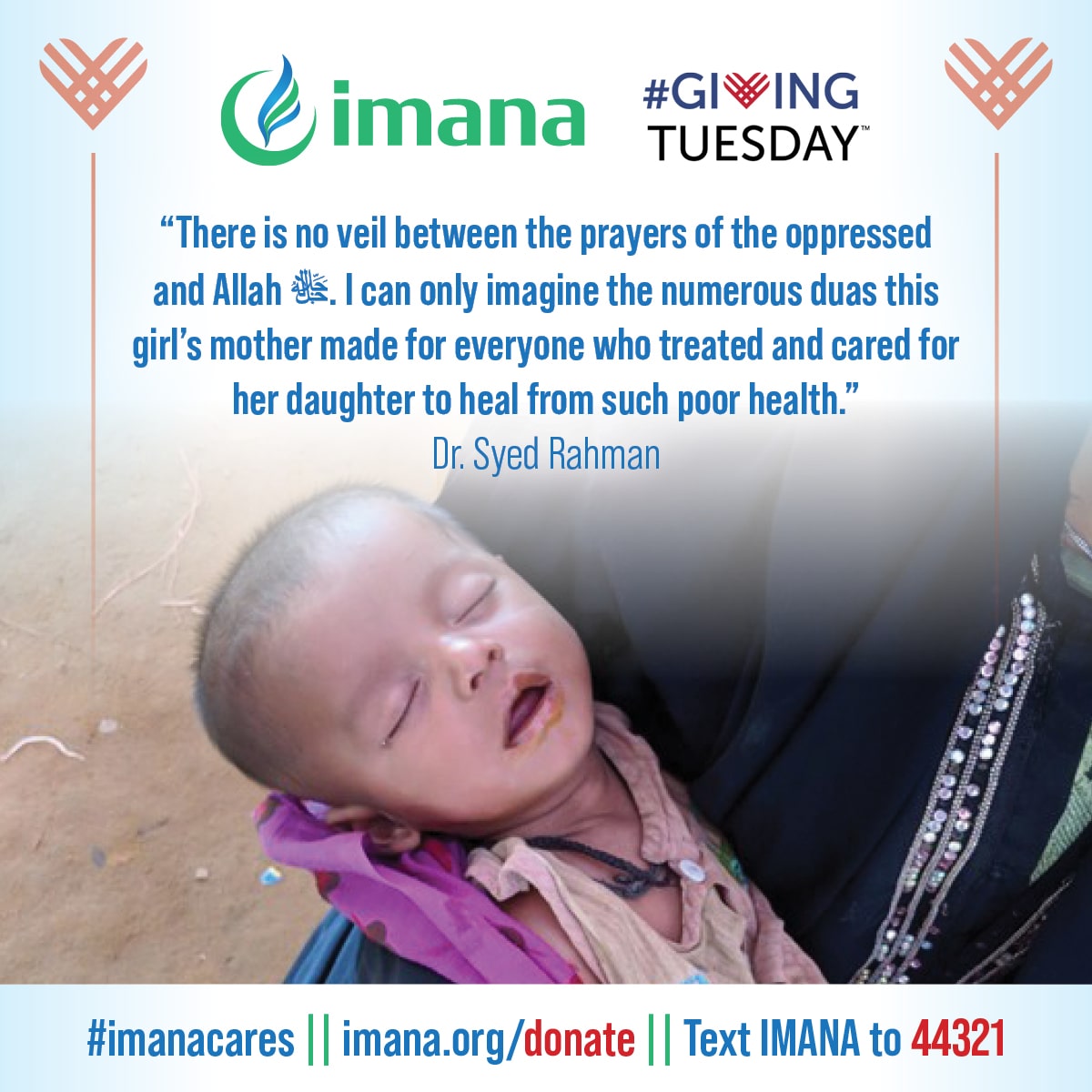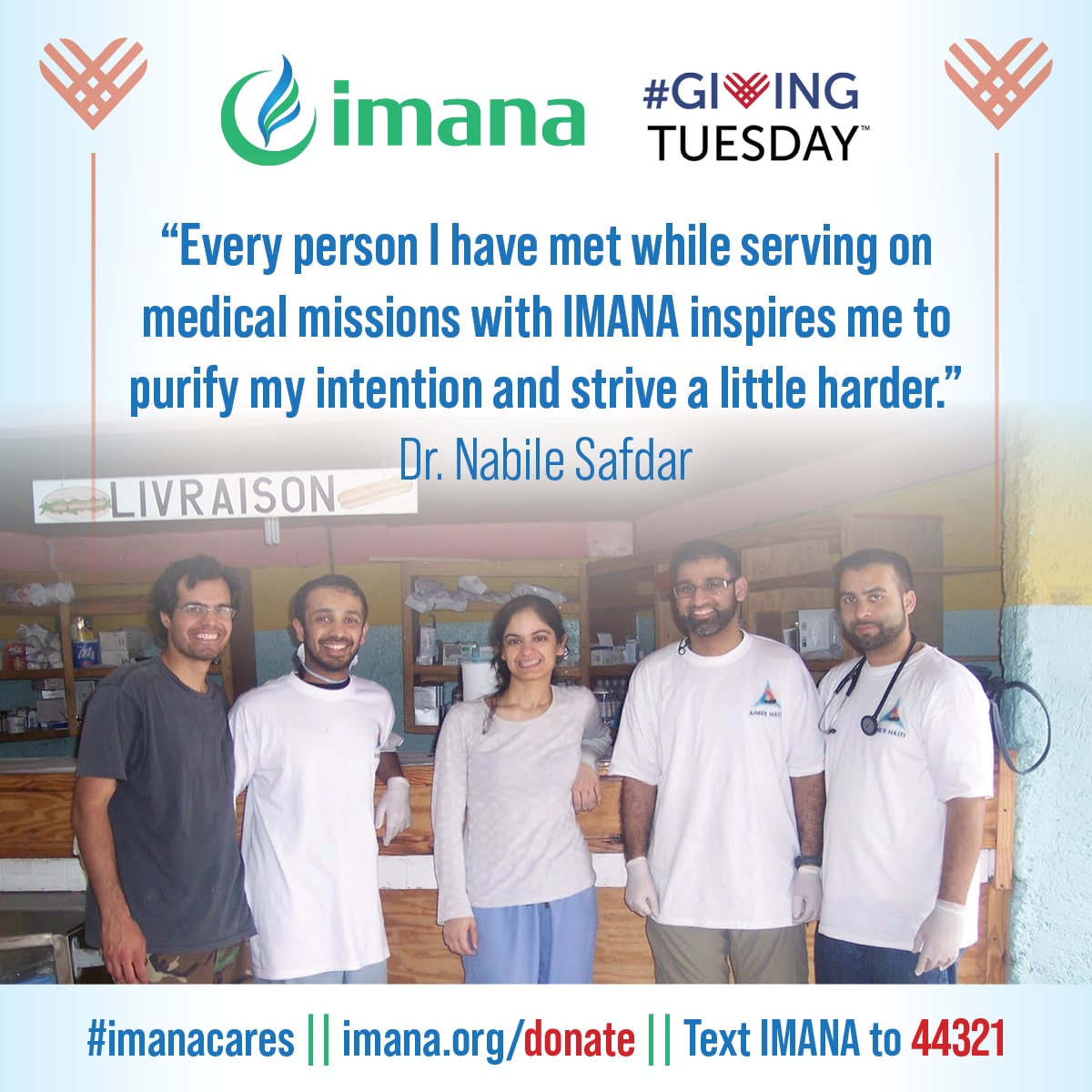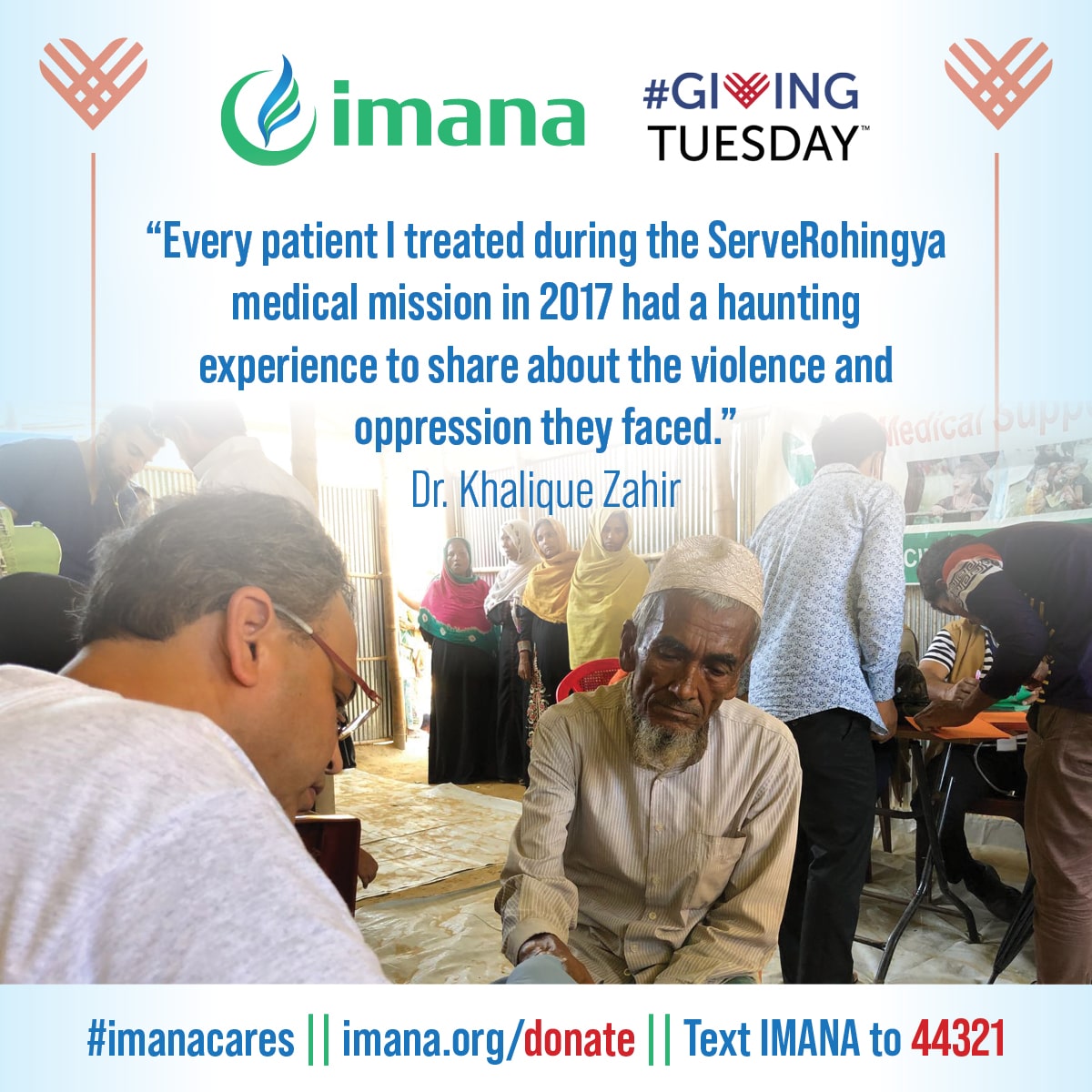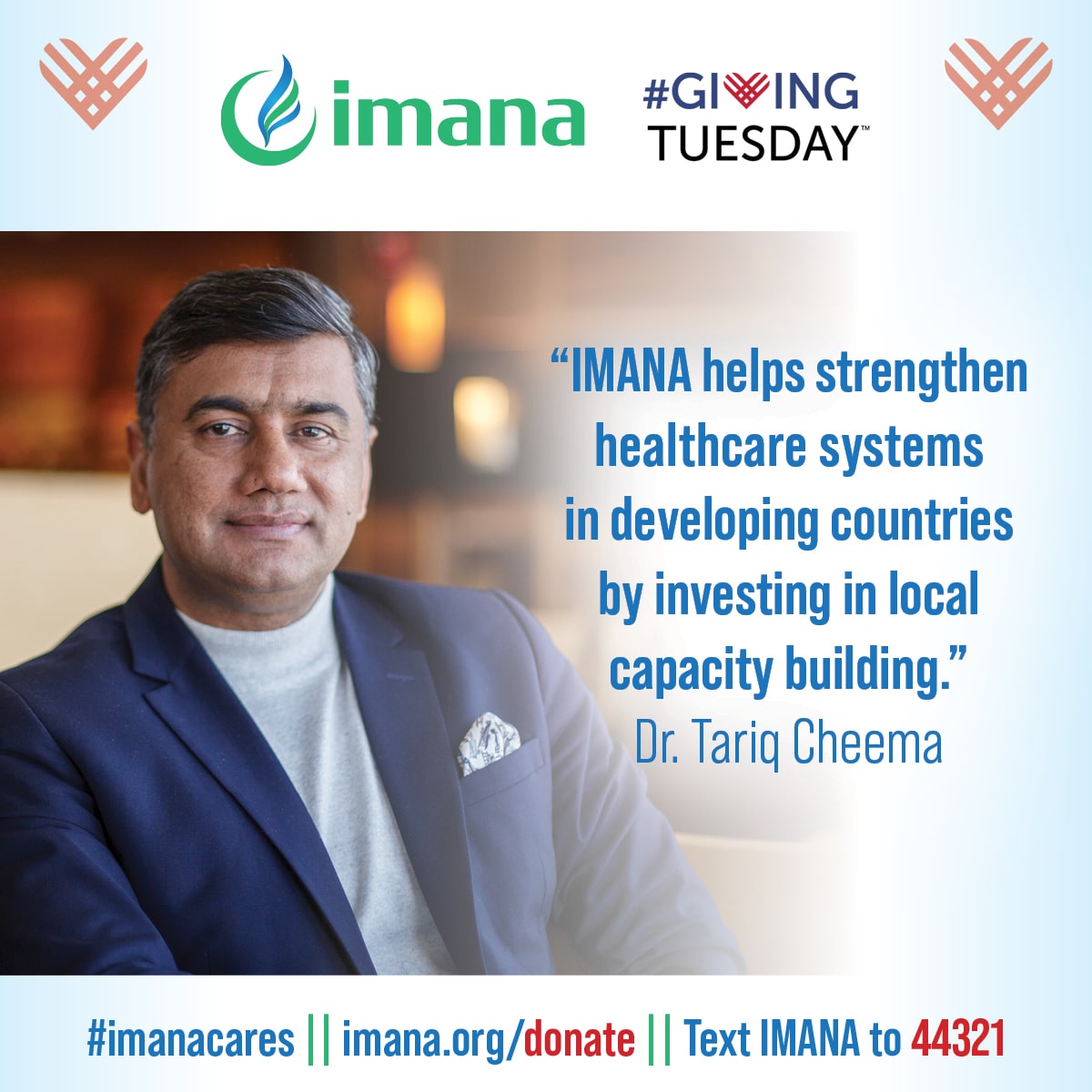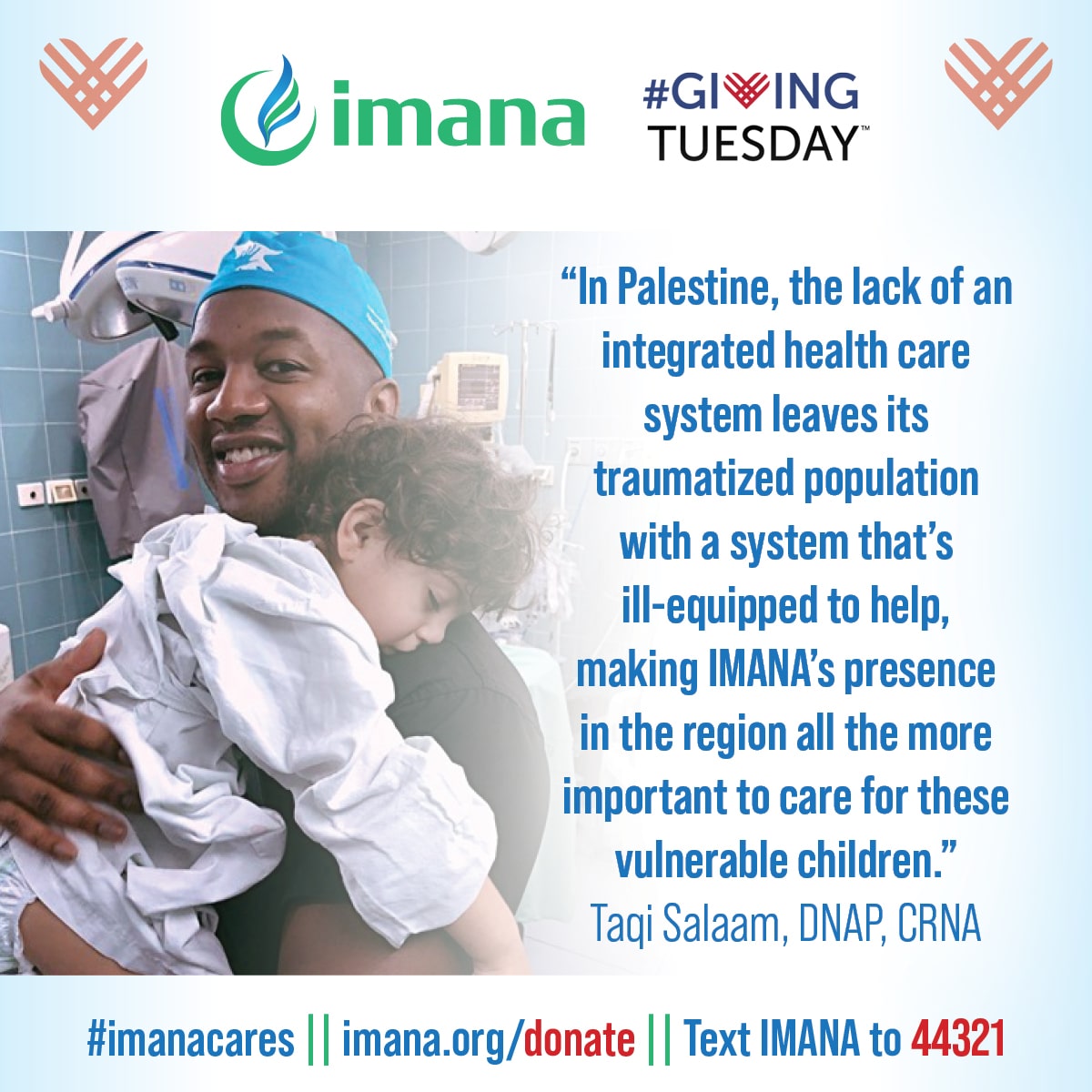It is truly inspiring to read about their commitment and compassion to provide much needed medical assistance to those affected by natural and climate-induced disasters, and armed conflicts.
Marium Husain, M.D., MPH
I took this photo of a local creek near the clinic in Haiti, contaminated by waste. I couldn’t believe the locals rely on this stream for drinking and making wudu! A change in climate is felt primarily through a change in water, which puts millions of lives at risk.
I was so thankful that IMANA understood access to safe and readily available water, an essential in maintaining public health. So, in addition to providing medical aid, we fundraised for wells and water filters to reduce the likelihood of diarrhea and other diseases.
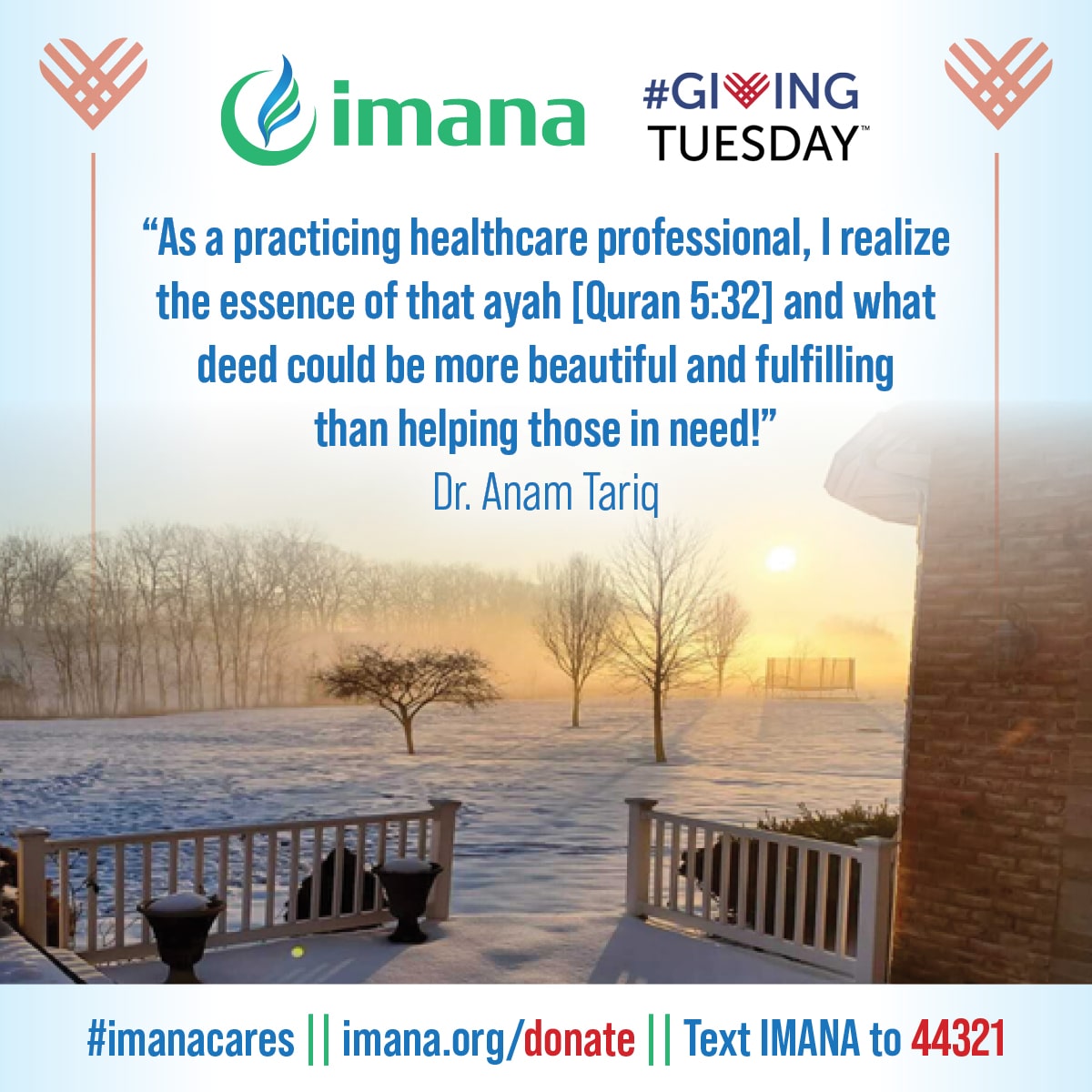
Anam Tariq, D.O., MHS
Syed Mohseen Rahman, M.D.
To this day, I often think about my last patient at the camp, this young child cradled in her anxious mother’s arms. The child came in with a fever, dehydration and was septic. Allahﷻ put our medical team in that place at that very moment to get this young child the critical help she needed to survive. There is no veil between the prayers of the oppressed and Allahﷻ. I can only imagine the numerous duas this girl’s mother made for everyone who treated and cared for her daughter to heal from such poor health. How lucky are those who donated towards this cause and made their way into this mother’s heartfelt dua!
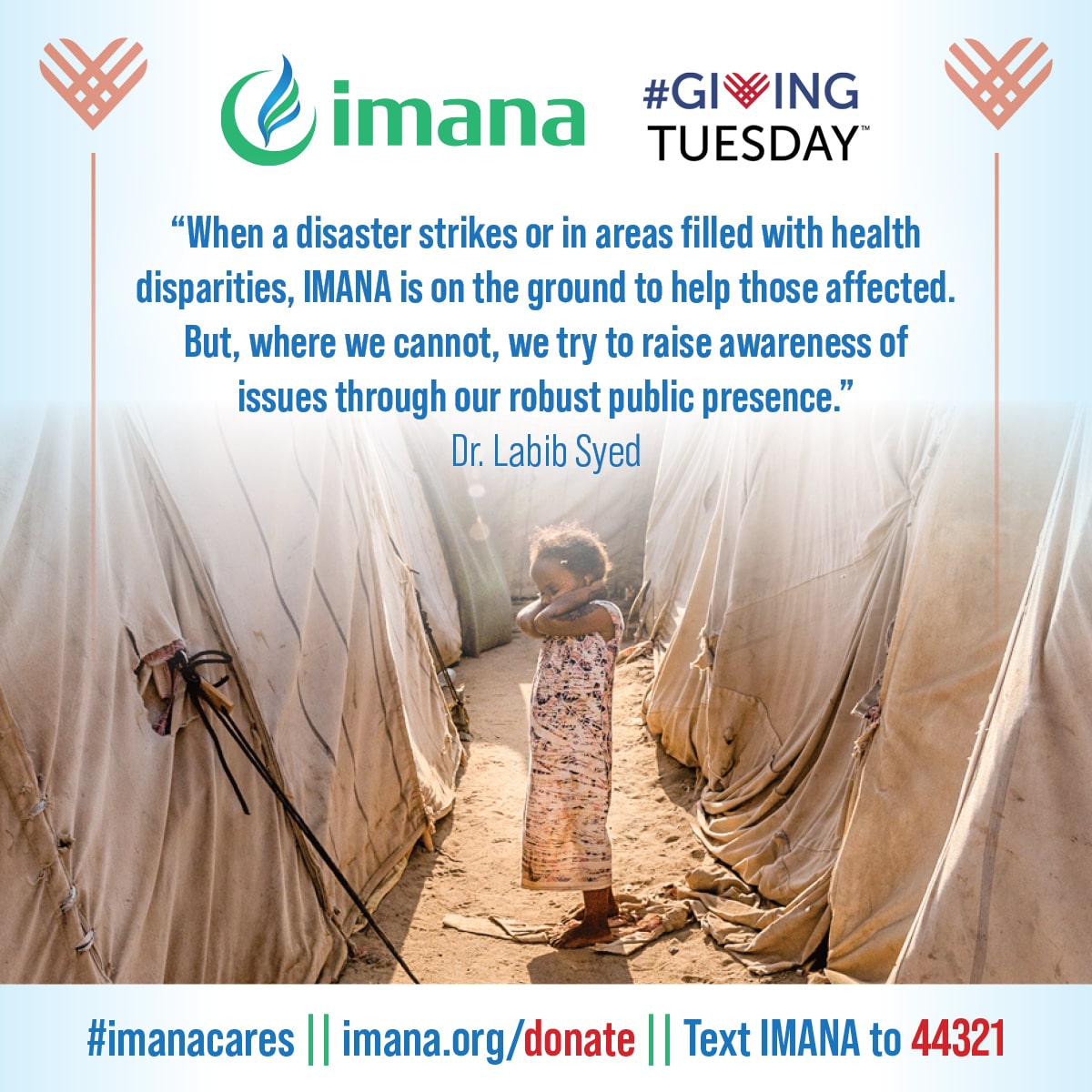
Labib H. Syed, M.D., M.P.H
IMANA’s work goes hand in hand with this Hadith. When a disaster strikes or in areas filled with health disparities, IMANA is on the ground to help those affected. But, where we cannot, we try to raise awareness of issues through our robust public presence, and lastly, we pray to overcome these hardships.
Nabile Safdar, M.D., MPH
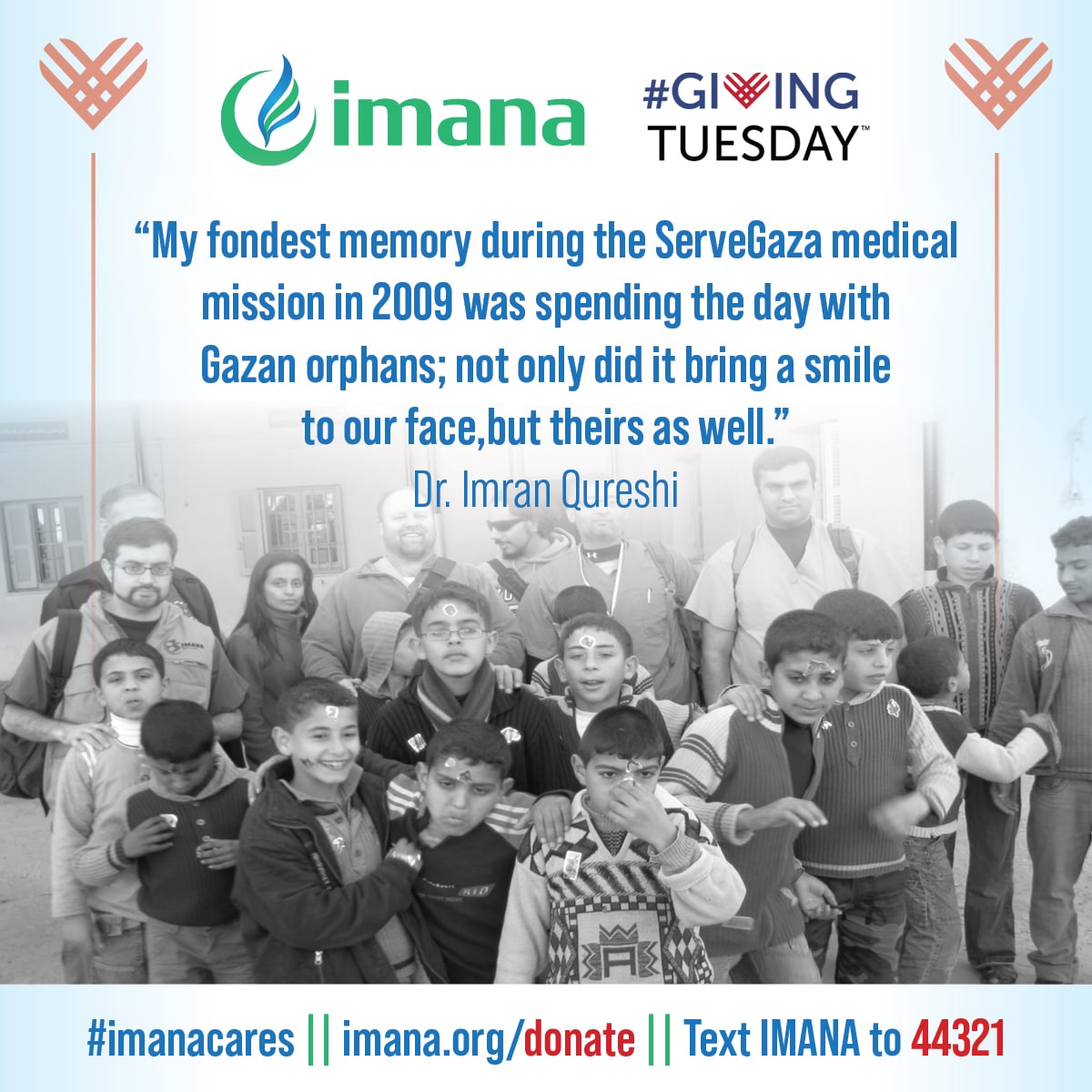
Imran Qureshi, M.D.
Khalique Zahir, M.D.
That year, the largest exodus of Rohingyas sought refuge in Bangladesh, and I was among the first group of volunteers on the ground to provide medical support. Every patient had a haunting experience to share about the violence and oppression they faced.
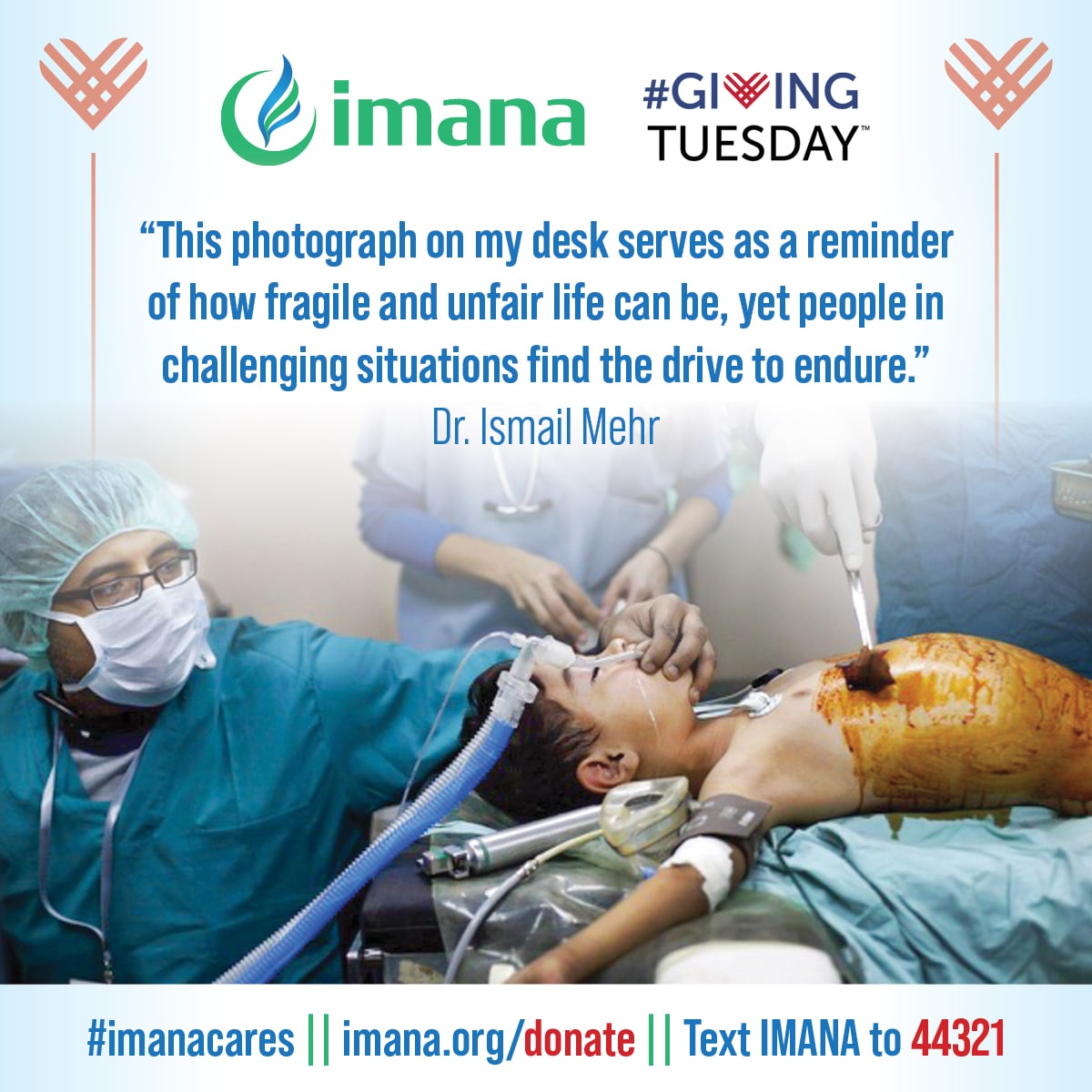
Ismail Mehr, M.D.
Serving in Gaza, amidst an active conflict will always remain a palpable memory with all of its challenges. The young Abdullah Shawwa will forever remain near and dear to those memories. At just four years old, Abdullah was diagnosed with kidney cancer known as Wilms tumor. A very treatable type of cancer. However, in a weak health care system that was devastated by years of war and isolation, I found myself thinking of my son, Ibraheem. What or how he contrasted in this situation, Ibraheem would have access to the best medicine and care.
Tariq H. Cheema, M.D.
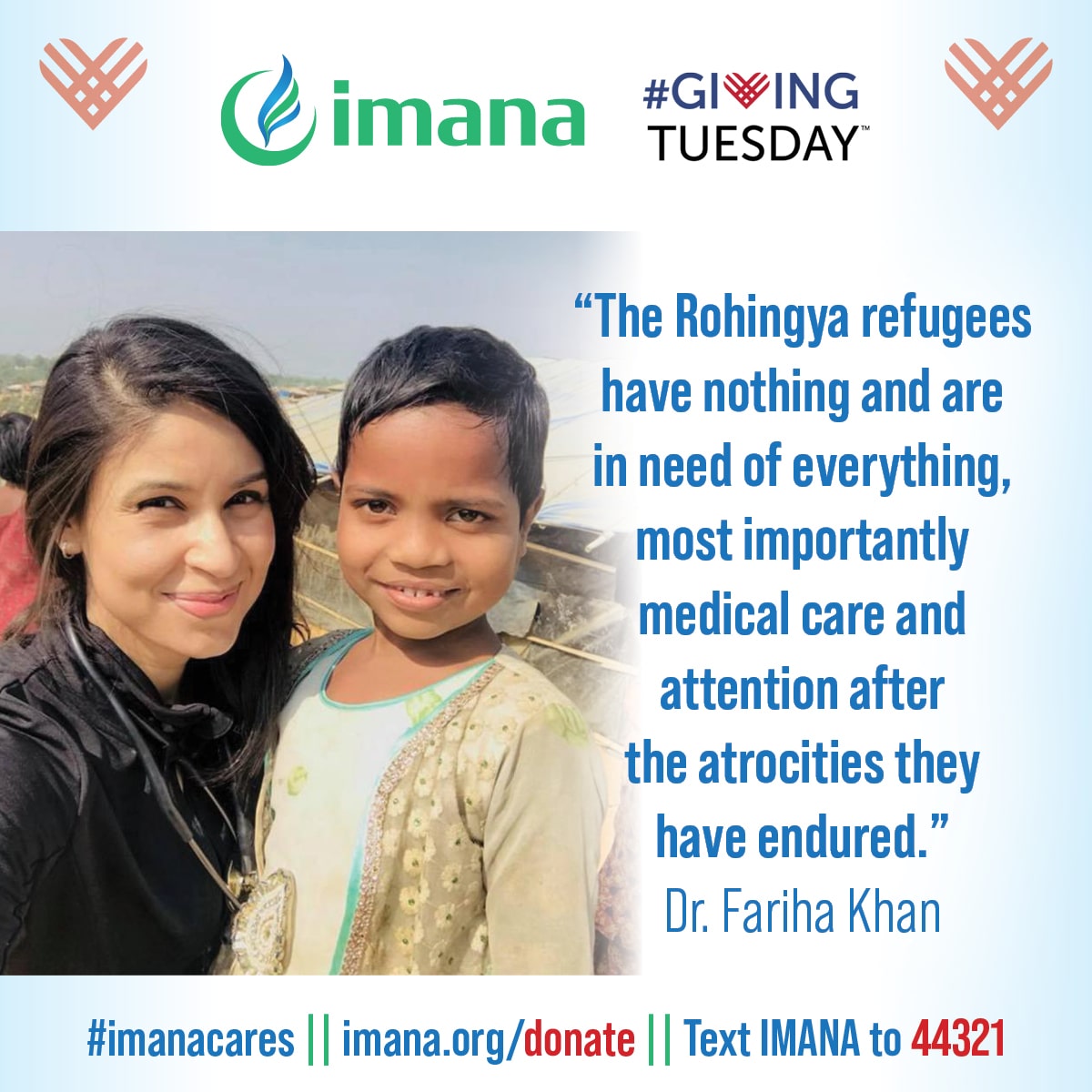
Fariha Khan, M.D.
What kept me going during this week-long medical mission was witnessing the resilience and spirit of children no matter their circumstances, SubhanaAllah they were all smiles and giggles after receiving the necessary medical care and attention to their needs.
Taqi Salaam, DNAP, CRNA
In 2018 when I was serving on the medical mission in Palestine, this conversation with a hospital custodian is what solidified my commitment to being an IMANA volunteer.As he was cleaning the operating room between surgical cases, it piqued his curiosity to know why the medical team from the US had come so far to treat the children in Gaza suffering from polydactyly, gunshot wounds, and extensive burns.
In a conflict-ridden area, he expressed that these ailments were the least of these children’s problems. It was usual for the children to go on with their lives without ever receiving treatment for these pains.
It was a legitimate question that I still ponder over. For me, children don’t ask to be born. Yet, here they are. Children don’t choose their country or neighborhood of origin, yet here they are. And most certainly, no child asks to be sick or be in the hospital.
I supported IMANA and became a volunteer because we owe these cute little beings a chance to have a childhood. What better way to accomplish this than by fighting healthcare disparities on a global scale? As adults, our duty to the world’s children is to give them an excellent quality of life. And that is what motivates me to support IMANA.
There are many more ways you can significantly help IMANA progress towards its goal to positively impact the health of humanity; simply by sharing on social media about IMANA’s impact on 2.87 million patients in 36 countries with your friends and family.
